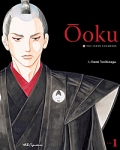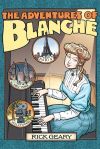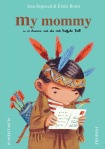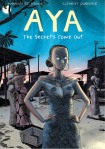 Over at The Comics Journal, Shaenon K. Garrity notes that Fumi Yoshinaga’s Ôoku: The Inner Chambers (Viz) is the first comic to win the Tiptree Award. Here’s a bit about the award itself:
Over at The Comics Journal, Shaenon K. Garrity notes that Fumi Yoshinaga’s Ôoku: The Inner Chambers (Viz) is the first comic to win the Tiptree Award. Here’s a bit about the award itself:
“In February of 1991 at WisCon (the world’s only feminist-oriented science fiction convention), award-winning SF author Pat Murphy announced the creation of the James Tiptree, Jr. Award, an annual literary prize for science fiction or fantasy that expands or explores our understanding of gender.”
And here’s a bit of the inimitable Garrity’s reaction:
“Frankly, it blows my mind that the comics industry is producing work even worth consideration for this award. My expectations for the comics industry in the field of expanding or exploring our understanding of gender are not high. But, on reflection, there are a lot of interesting comics that explore gender and sexuality–maybe fewer specifically in the genre of science fiction, but the stuff is out there. It just doesn’t always get much attention.”
 Anime News Network notes that Mari Yamazaki’s Thermae Romae (Enterbrain) has won the Manga Taisho Award:
Anime News Network notes that Mari Yamazaki’s Thermae Romae (Enterbrain) has won the Manga Taisho Award:
“The gag manga deals with the two cultures in the world ‘that have loved baths the most: the Japanese and the Romans!’ The manga has been running Enterbrain’s Monthly Comic Beam magazine since 2008, and the first compiled book volume shipped in November.”
I repeat that I’m totally obsessed with Comic Beam. The more comics licensed from that magazine, the better.








